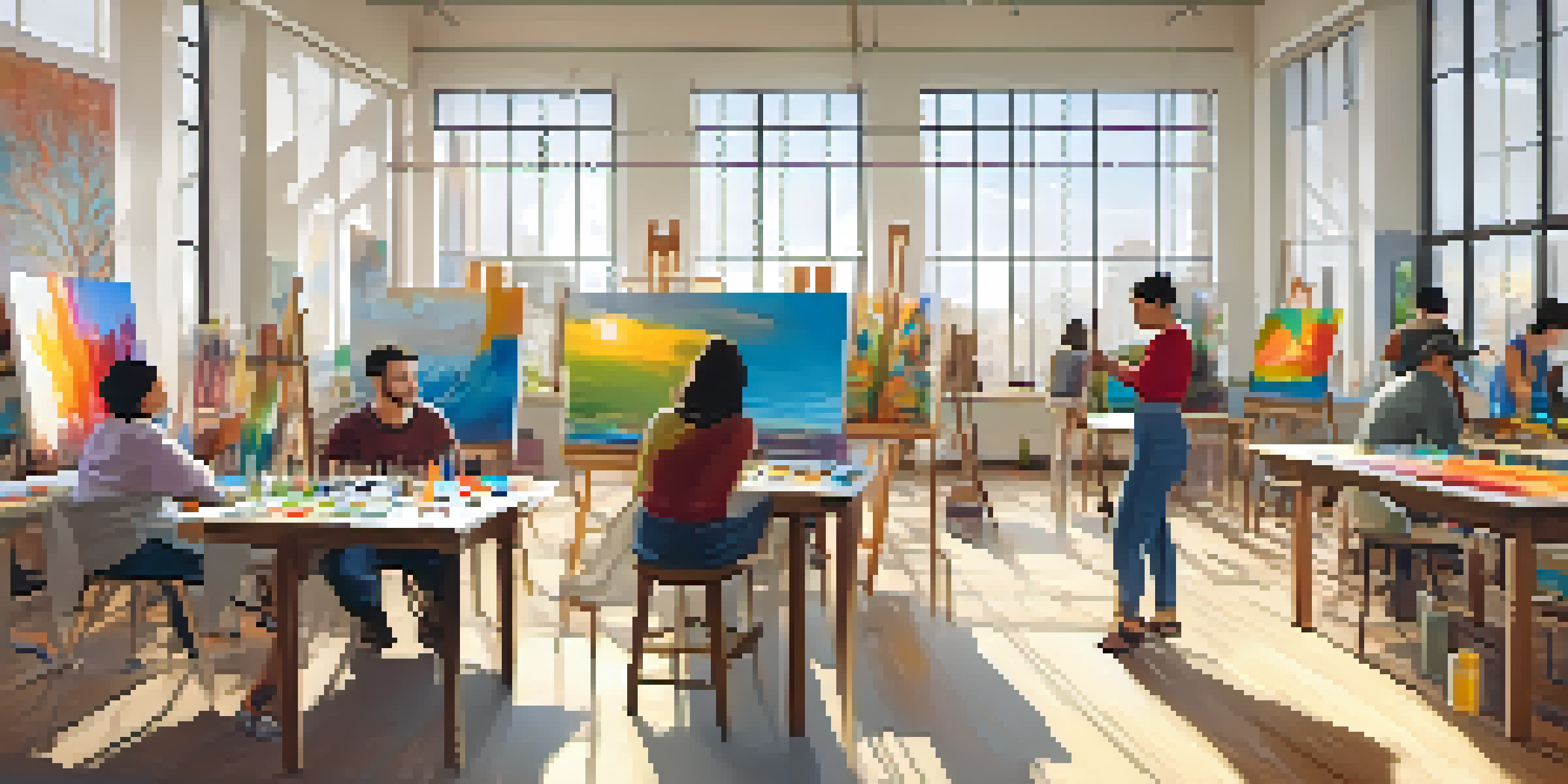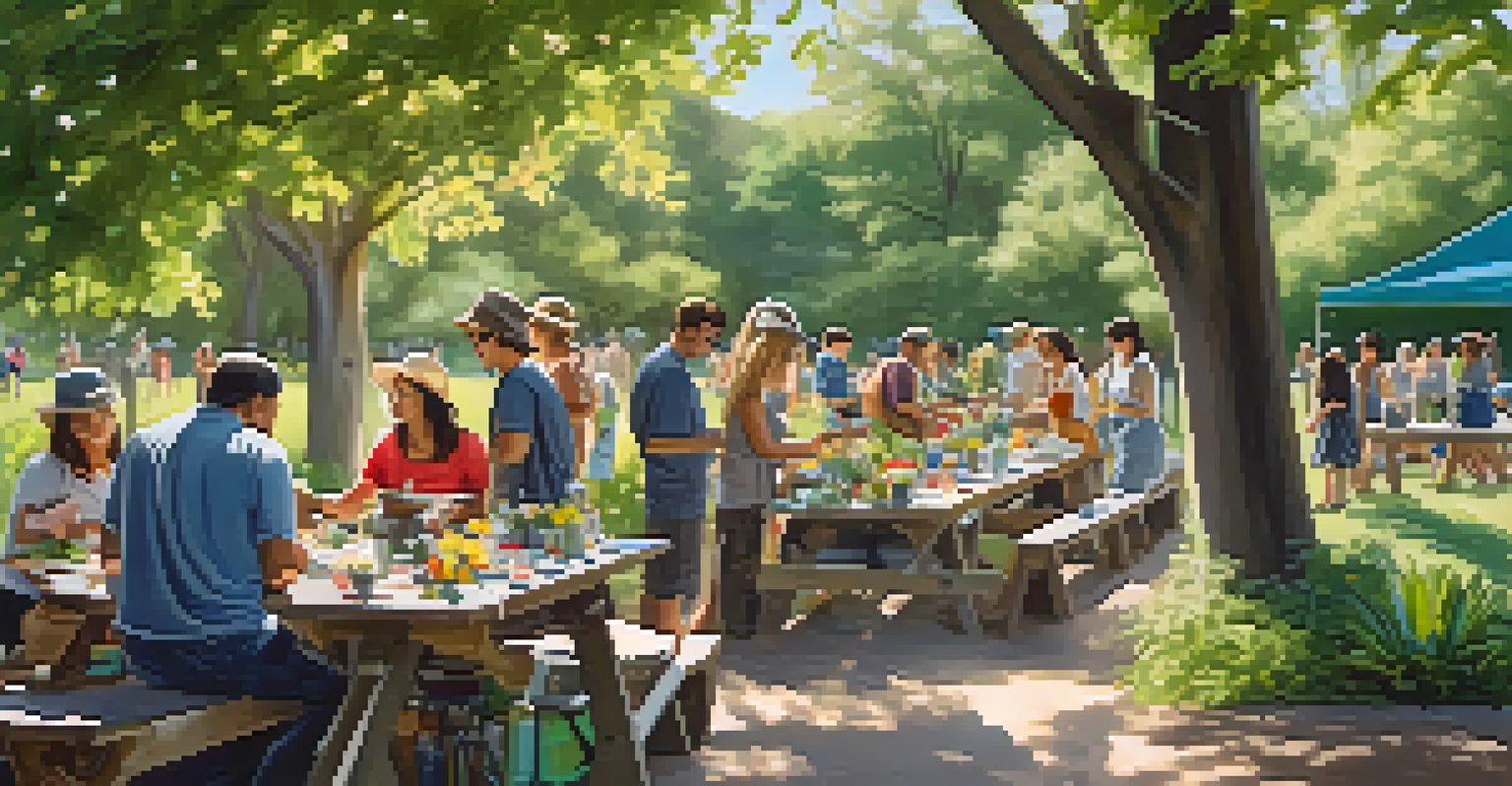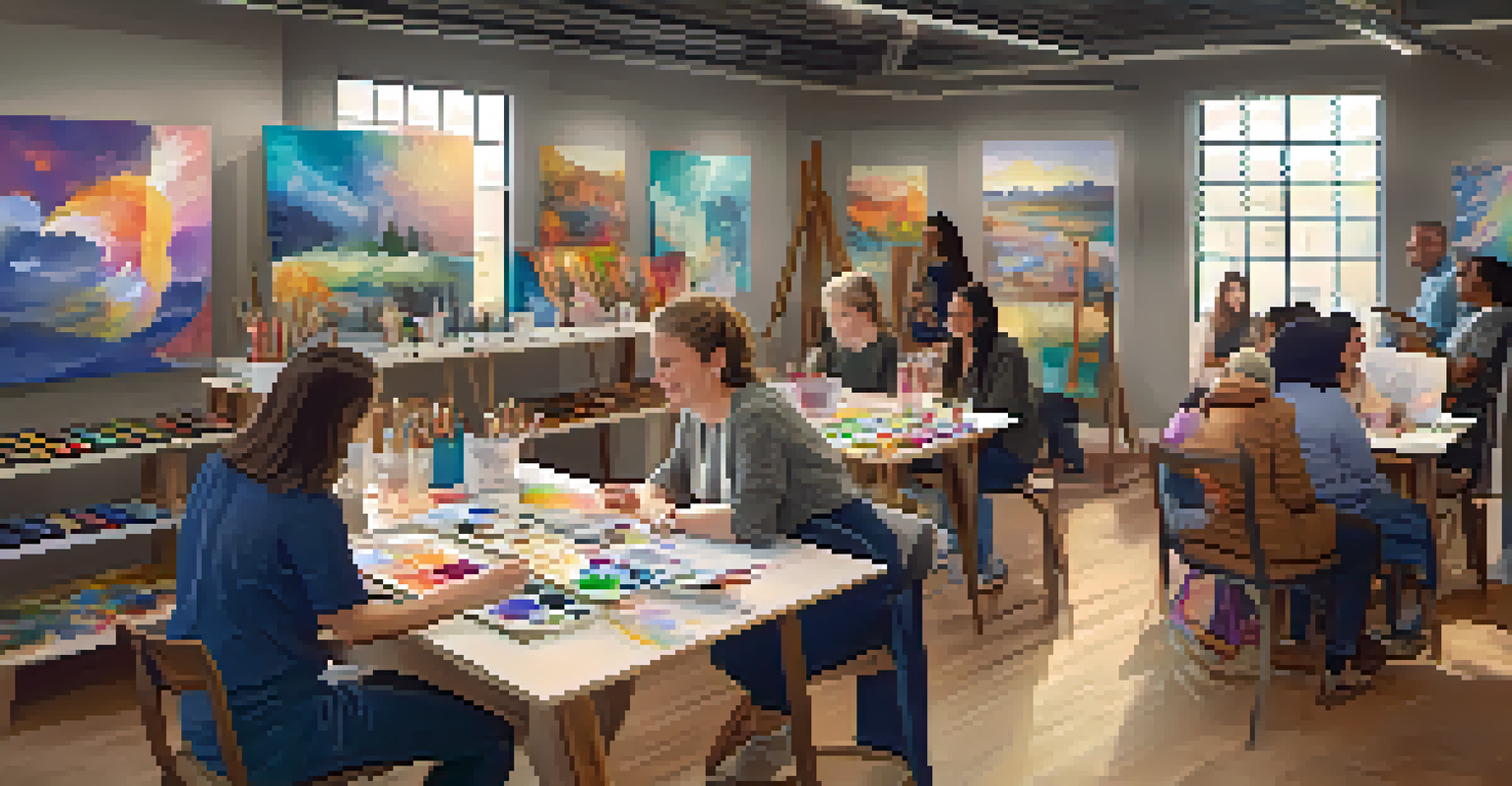Hosting Art Workshops: Engage Your Community with Creativity

Why Art Workshops Matter for Community Engagement
Art workshops serve as a vibrant platform for community members to connect. They foster creativity and collaboration, which are essential for building strong relationships. By bringing people together through artistic expression, these workshops create a sense of belonging and shared purpose.
Art enables us to find ourselves and lose ourselves at the same time.
Engaging in art can be a transformative experience, allowing individuals to express their emotions and ideas. This form of self-expression often leads to deeper conversations and connections among participants. As creativity flows, barriers break down, paving the way for a more inclusive community.
Moreover, art workshops can highlight local talent and culture, enriching the community's identity. They encourage participants to explore their creativity while appreciating the diverse backgrounds and perspectives of others. This shared exploration not only enhances individual skills but also strengthens community ties.
Choosing the Right Type of Art Workshop
When planning an art workshop, the first step is identifying the type of art that resonates with your community. Consider various mediums such as painting, pottery, or even digital art. Tailoring the workshop to the interests of your audience ensures higher engagement and participation.

You might also think about the skill levels of your participants. Offering a range of workshops, from beginner to advanced, can help accommodate everyone. This way, participants feel comfortable regardless of their experience, making it a welcoming environment for all.
Tailor Workshops to Community Needs
Identifying the interests and skill levels of participants ensures higher engagement and a welcoming atmosphere.
Additionally, consider incorporating local themes or cultural elements into your workshops. This not only makes the experience more relatable but also educates participants about their community's history and traditions. Bridging art with local culture can spark creativity and pride among attendees.
Finding the Perfect Venue for Your Workshop
Selecting an appropriate venue is crucial for the success of your art workshop. Look for spaces that are accessible and can comfortably accommodate your expected number of participants. Community centers, local galleries, or even outdoor parks can serve as wonderful backdrops for creative endeavors.
Creativity takes courage.
The ambiance of your chosen venue can significantly influence the creative process. A bright, open space with natural light can inspire and motivate participants. Conversely, a cluttered or cramped environment may stifle creativity, so aim for a setting that promotes comfort and free expression.
Don’t forget to consider the necessary materials and equipment for your workshop. Ensure that your venue has the resources needed, such as tables, chairs, and art supplies. By planning ahead, you can create a seamless experience that allows attendees to focus entirely on their artistic journey.
Promoting Your Art Workshop Effectively
Once you have your workshop planned, it's time to spread the word! Utilize social media platforms, local community boards, and newsletters to reach potential attendees. Engaging visuals of past workshops can grab attention and excite people about what’s to come.
Consider collaborating with local artists or influencers who can help promote your event. Their endorsement can lend credibility and attract a wider audience. Hosting a pre-event Q&A or demonstration can also pique interest and encourage sign-ups.
Art Workshops Foster Community Bonds
These workshops create connections through shared creative experiences, promoting inclusivity and collaboration.
Don’t underestimate the power of word-of-mouth. Encourage participants to invite friends or family, creating a ripple effect that can boost attendance. By fostering a community spirit, your workshop can become a popular gathering for art enthusiasts.
Creating a Welcoming Atmosphere for Participants
A welcoming environment can make all the difference in how participants experience your workshop. Start by greeting everyone with a smile and encouraging introductions. This simple act can help break the ice and set a friendly tone for the session.
Incorporate icebreaker activities to help participants feel at ease. These can be creative prompts or group discussions that encourage sharing ideas. The more comfortable attendees feel, the more likely they are to engage fully in their artistic expression.
Remember to celebrate the uniqueness of each participant's work. Encouraging constructive feedback and appreciation can foster a positive atmosphere. This sense of community support not only boosts confidence but also enhances the overall experience for everyone involved.
Incorporating Feedback to Improve Future Workshops
After your workshop, gather feedback from participants to understand what worked well and what could improve. Simple surveys or informal discussions can provide valuable insights. By actively seeking opinions, you show attendees that their experience matters.
Analyzing feedback helps you refine your approach for future workshops. Maybe participants want more hands-on guidance, or perhaps they enjoyed the group dynamics. This information allows you to adapt your offerings to better meet the needs and desires of your community.
Feedback Enhances Future Workshops
Gathering participant feedback allows for continuous improvement, building trust and encouraging return attendance.
Remember, continuous improvement is key. By making adjustments based on feedback, you not only enhance future workshops but also build trust within the community. Participants will appreciate your efforts and be more likely to return for more creative experiences.
Building Long-Term Community Connections Through Art
Hosting art workshops isn't just a one-time event; it's an opportunity to build lasting community connections. By creating a series of workshops, you can foster ongoing relationships among participants. This continuity allows for deeper connections and collaborative projects to emerge.
Encourage participants to share their work beyond the workshop. Creating a community gallery or online platform where attendees can showcase their art can maintain engagement. This not only celebrates their creativity but also keeps the spirit of collaboration alive.

Lastly, consider organizing community art events or exhibitions that feature the works created in your workshops. This not only showcases local talent but also strengthens the community's identity and pride in their artistic endeavors. Together, these efforts can lead to a more vibrant, connected community.